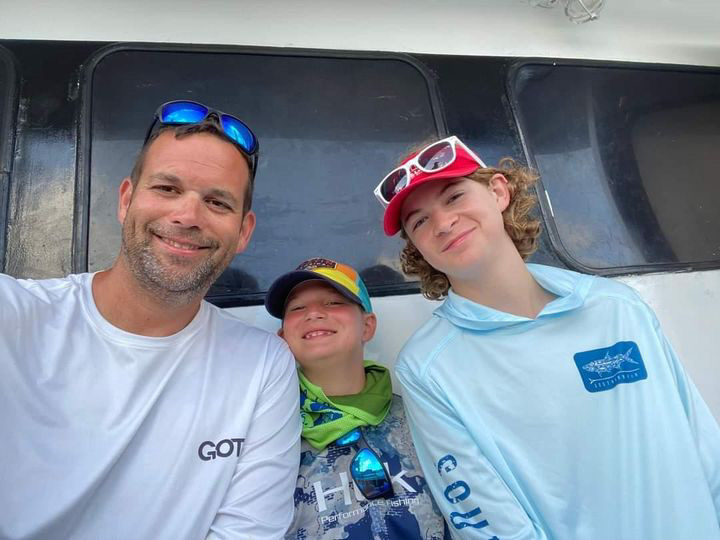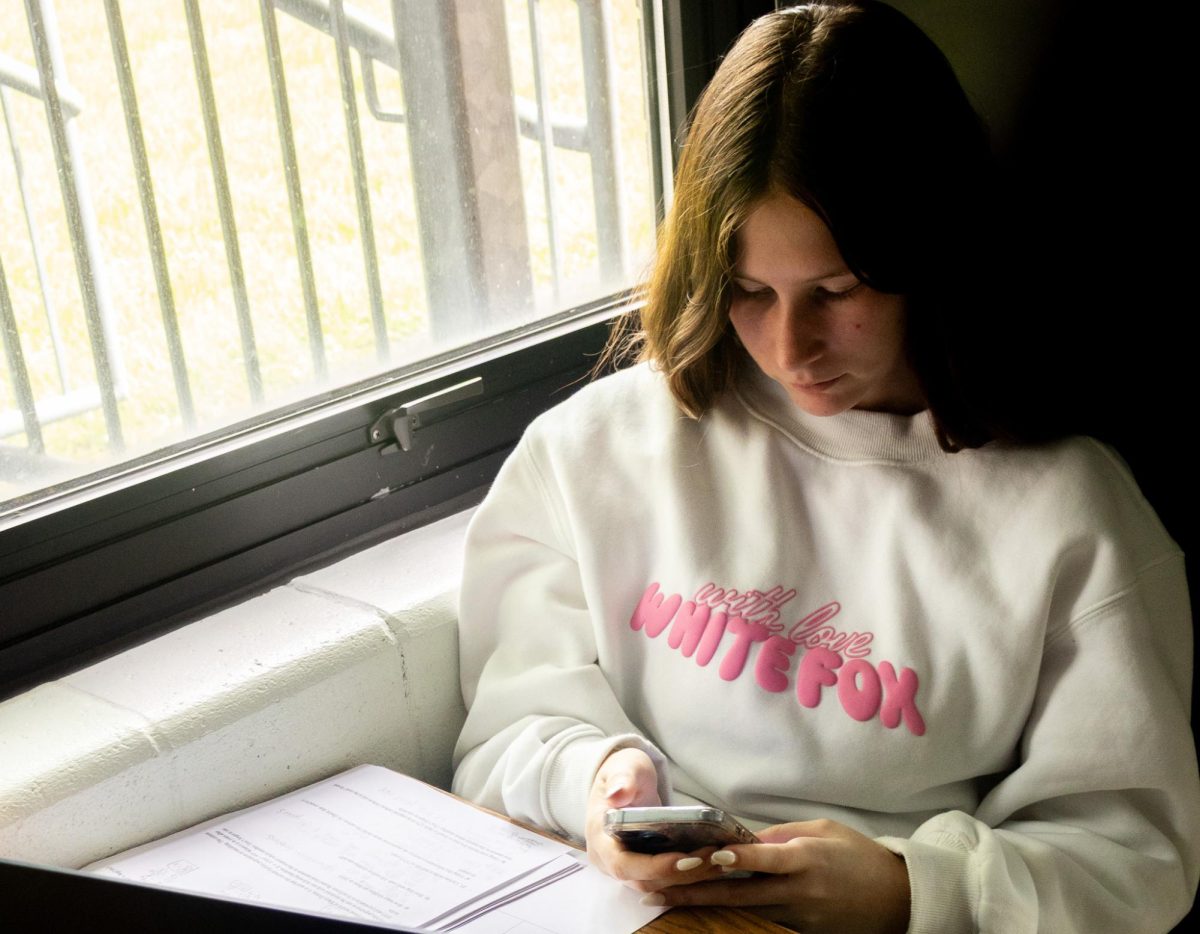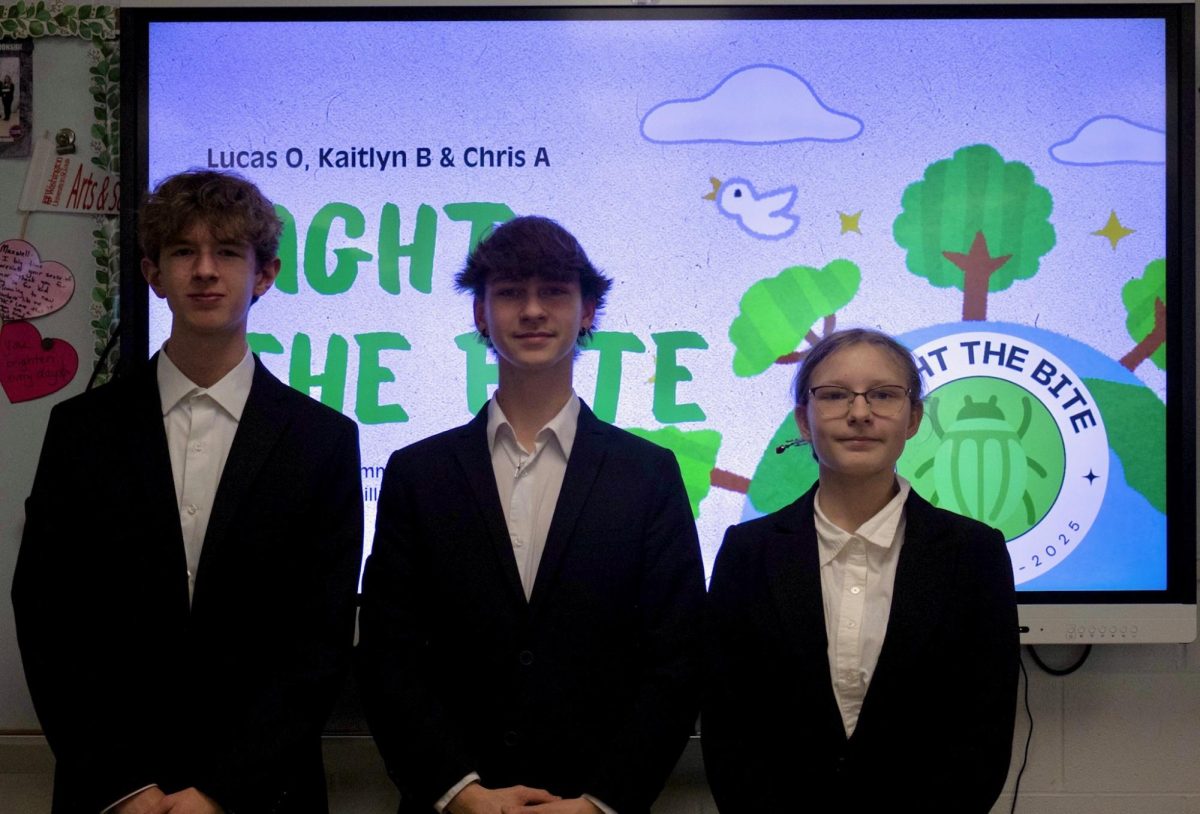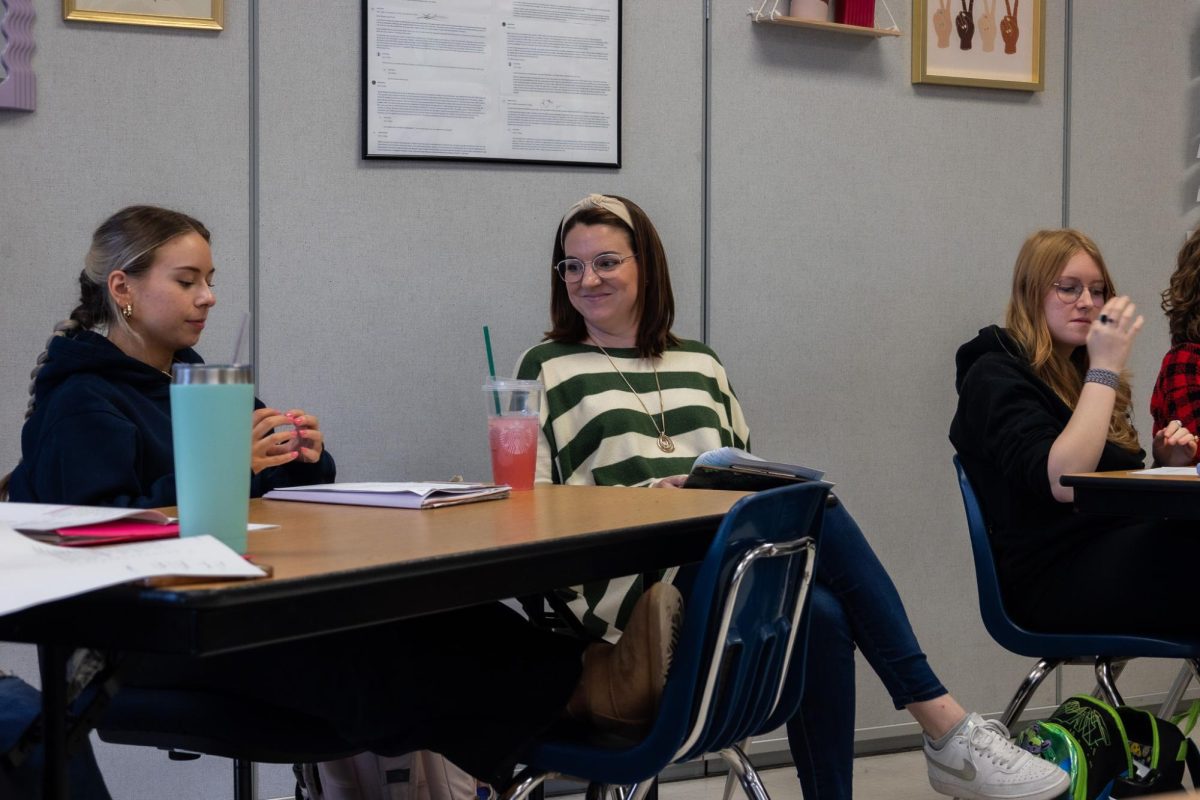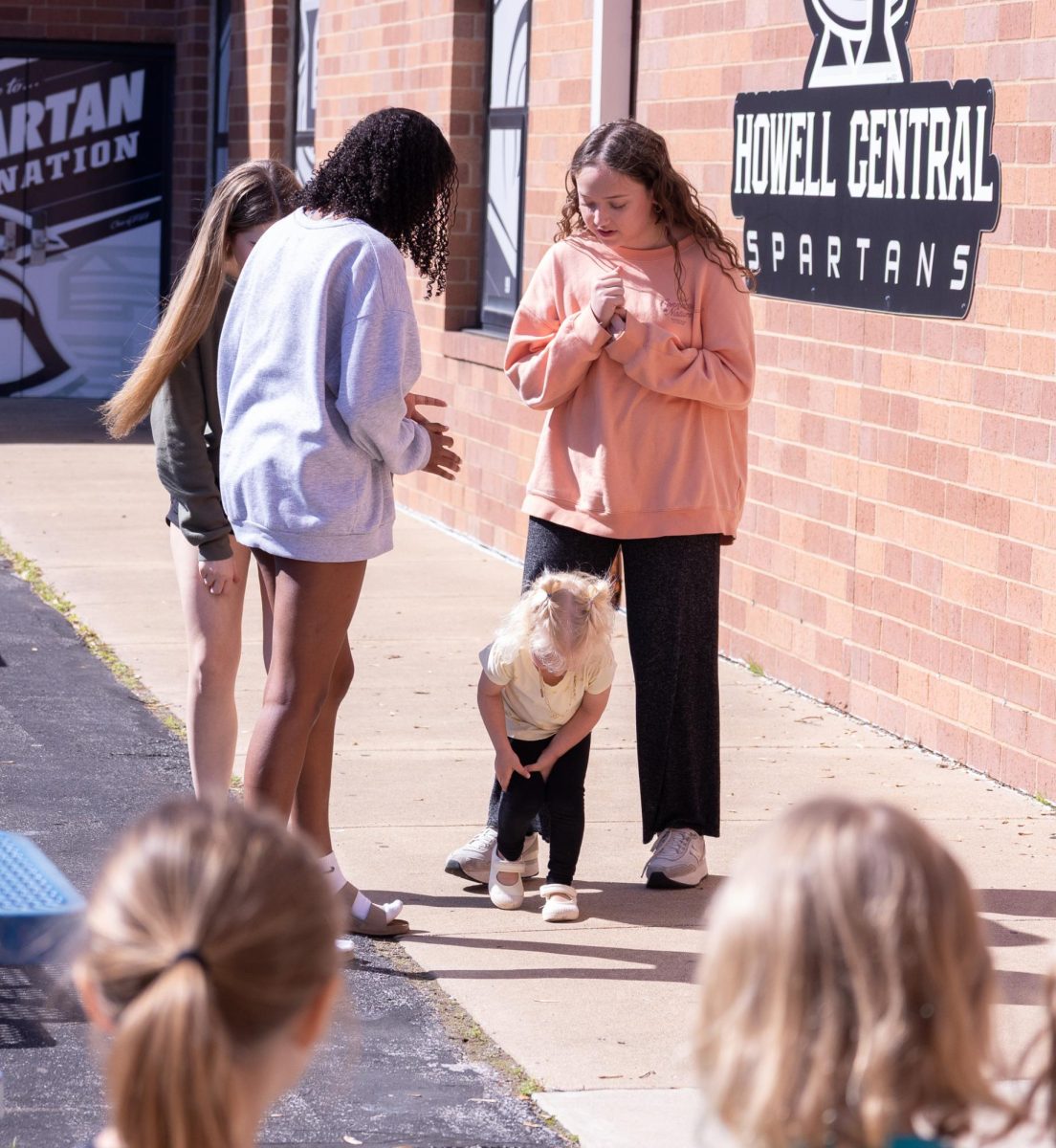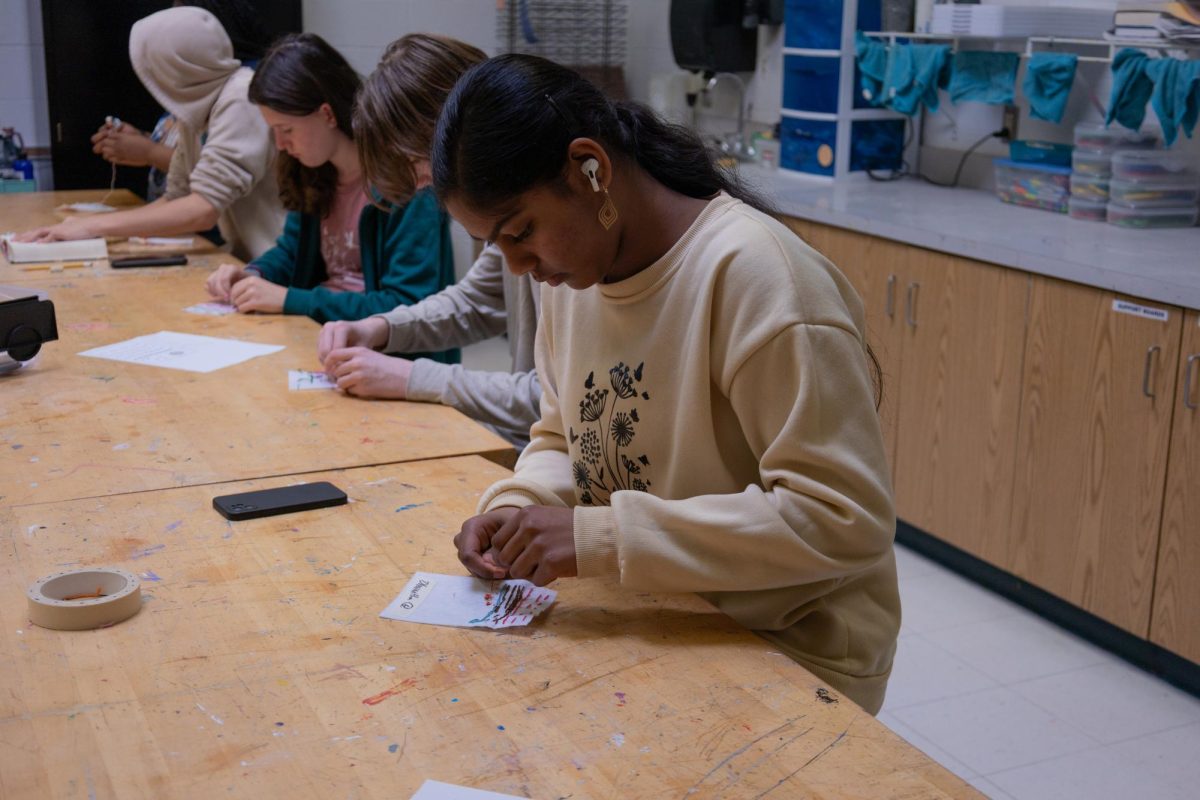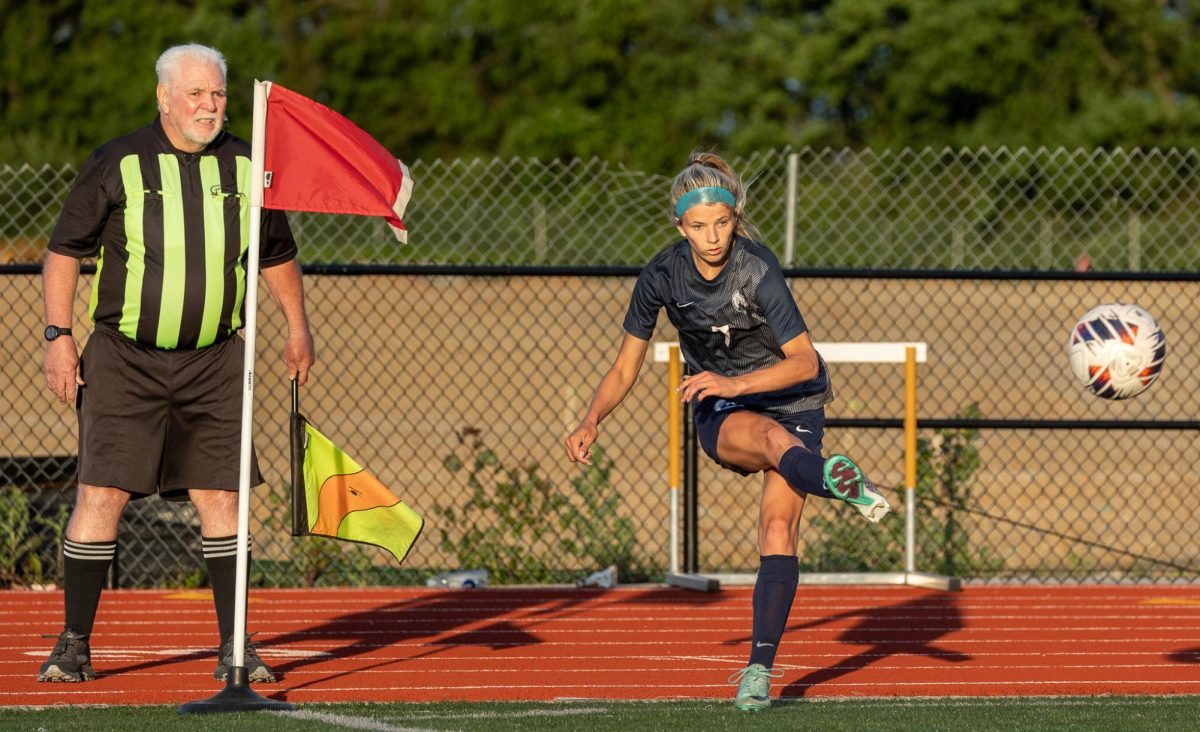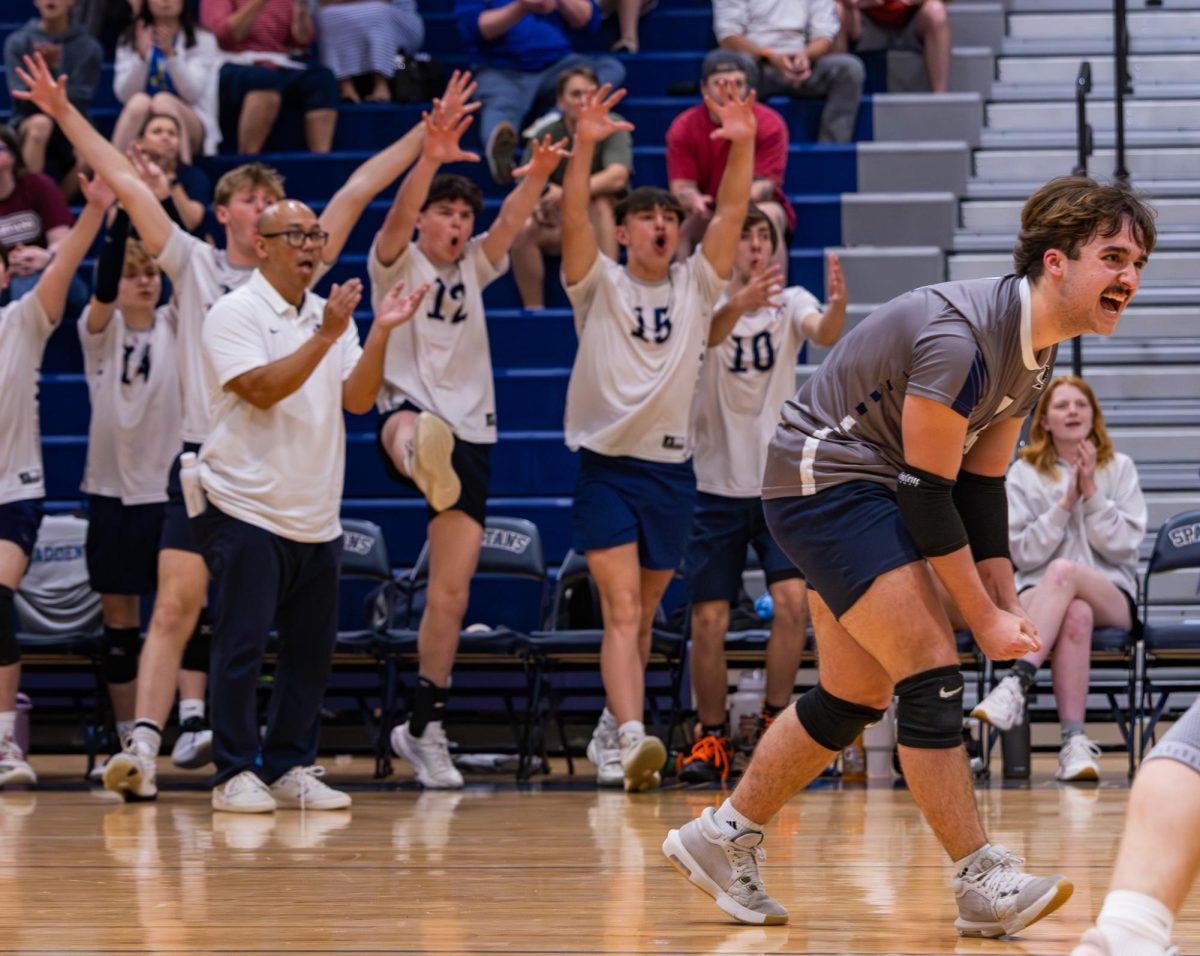Summer Series


While many students throw away old assignments along with their responsibilities for the summer, others sign up for training camps, lace up their running shoes, and prepare for a summer of off-season training for their sports.
Many professional athletes train during their off-seasons, and high school students are no exception. A summer of training not only helps athletes maintain their progress made in-season but can also lead to self-improvement; the students could potentially start a new season in even better condition than where they ended last year. This progress is possibly most easily observed in cross country, a sport built upon individual performance and training. There’s very little gray area in running: either the times are getting faster or they’re not. However, according to cross country coach Zach McKinley, time is not the most important factor in off-season training – mileage is.
“If you’re trying to run 5K’s and you hardly can run three miles a practice, that’s an issue,” Coach McKinley said. “Everyone should be able to feel comfortable running longer than what they race.”
Although Coach McKinley believes that getting miles under their belts is extremely important for each runner on his team, he acknowledges that summer training can look different for different athletes.
“I think girls can run 30 miles [a week], maybe a little bit more for boys — they might do 40 and feel comfortable going into the season,” Coach McKinley said. “But there are some situations where you might give an athlete a little bit more mileage over the summer, like 50 [miles a week], and then come season time, bump it down to 40 to let them feel a bit more fresh on a day-to-day basis.”
Many runners train individually, but it can sometimes be difficult to hold themselves accountable for their own training. One approach to this issue is to join a running team, as sophomore Don Thorton did last summer. Thornton’s AAU [Amateur Athletics Union] track team gives him the unique opportunity to train alongside other athletes in his grade after the high school track season ends.
“[In AAU] I could go against people my age, instead of in [high school] track when you’re running against people that are way older,” Thornton said. “You get to see where you’re at against your [own age].”
Even better than training alongside others is competing against them – both Thorton and McKinley see value in athletes pushing themselves in race situations before the season comes along.
“It’s a lot of competition,” Thornton said. “Some teams [are] known for being good or they have a lot of people.”
Even without a team, runners can compete during their summer training by entering into races to get baseline times and practice running with some competitors.
“[They can] find some fun runs, like 5k’s or Fourth of July [runs],” Coach McKinley said. “Little races that go on in the St. Louis area.”
Training over the summer comes with several challenges for athletes, namely the heat, according to Coach McKinley.
“It’s easy to say ‘Hey, I’m gonna go for a run,’ but when you say that and it’s 95 to 100 degrees out, it’s a bit easier to say ‘I’m gonna stay in the AC,’” Coach McKinley said. “Over the summer you want people to get rest, but it’s hard to go from rest to heat training.”
Athletes cannot control the heat, so they must find ways to combat it. McKinley offered his advice for athletes struggling to train in the heat.
“Drink water, plenty of water, electrolytes. You gotta hydrate yourself,” Coach McKinley said. “Don’t just sit in the sun all day long and expect to go on a run afterwards. You got to be smart with the heat.”
Battling the summer sun is hard, but the struggle comes with its rewards later on. The blood, sweat, and tears of off-season training are the ingredients for success when the season comes around.
“For cross country specifically you need to get miles in. I think that summer training is the basis of success for a good, quality country season. Because those that don’t train over the summer it shows the first half of the season,” Coach McKinley said. “Those that get a good jump on it and train really hard over the summer and put in the grueling hours and grueling miles in the summer heat are gonna be the ones that reap the benefits come later [in the] post season.”
What summer item are you?
There was an error. Please try again.
5 Total Questions
Quiz Complete
Calculating Results...
Your Quiz result is:
Question 1/5
What do you do while you're at the pool?
Question 2/5
What is your favorite summer snack?
Question 3/5
What are you doing at the neighborhood cookout?
Question 4/5
Where do you want to go on summer vacation?
Question 5/5
What's your favorite summer activity?
Ending the school year takes a weight off of students’ shoulders – literally, as they shove their backpacks into the back of their closets to collect dust for the next three months. But some students are happy to exchange their school bags for suitcases and their heavy textbooks for travel guides as they prepare for a summer getaway.
One such student is senior Sam Dobbins, who will fly to Europe this summer along with many other foreign language students on their school-sponsored trip abroad. The students will get to experience three European countries: England, France, and Spain. Dobbins explained that it’s hard to pin down what they’re most excited for while thinking about a trip so packed with anticipation.
“I’m excited about London because it’s one of the most well-known cities on Earth,” Dobbins said. “But I’m also excited for Spain because I’m in AP Spanish V. I’ve been going through years of Spanish so I’m excited to see some things in person.”
Dobbins is not the only senior planning a summer vacation; senior Jack Rice is also preparing for a trip to mark the end of his high school career. Rice’s trip, however, will look a bit different. Joined by a few close friends, Rice plans on a ten day trip in the Bahamas.
“We’ll fly down to the Bahamas; we chartered a guy and he has all these sailboats,” Rice said. “And what he does is [take us] fishing for one day. [Then] we’ll go snorkeling. We’ll go island hopping on another day. It’s a whole living-on-a-boat experience.”
Trips like these don’t come out of thin air– both Dobbins and Rice have spent significant amounts of time planning and preparing. Dobbins, having heard about the opportunity to travel abroad from their previous Spanish teacher, began considering their trip over a year ago.
“I talked about it with my mom last year because that’s when information started coming out and Señora Crain was talking about it,” Dobbins said. “So we started thinking about it and [going] to meetings.”
The uncertainty of new experiences is a double-edged sword; all of the excitement comes accompanied with some nerves. Dobbins, having never traveled outside of the country before, has mixed emotions.
“I’m pretty nervous, honestly,” Dobbins said. “There’s going to be a lot of differences. But I’m ready to be open to anything.”
Rice’s concerns stem from similar uncertainties, but his are centered around the boat he will be living on during the trip. Seasickness is a common side effect of boating and, for people like Rice, can cause some nervousness and anxiety.
I haven’t really been on many big vessels. I guess. I’m used to very small pontoon boats. So this would be a first for me,” Rice said. “That’s why I’m a little nervous. I might get a little seasick.”
Despite their nerves, both Dobbins and Rice are looking forward to this summer and their travels abroad.
![Junior Carrie Byrne [on left] smiles as she finishes up her shift at Hut 8. Carrie has worked at Hut 8 for nearly a year and has enjoyed getting to know her coworkers.](https://fhctoday.com/wp-content/uploads/2024/05/IMG_20240516_113138.jpg)
As summer approaches more and more students search for a way to productively spend their time, and for many of these students a summer job seems to be the best option. Whether it’s working multiple jobs or finding an internship in their desired field, making some extra money is a good way to spend the summer.
One student who plans to spend her summer working is junior Carrie Byrne who has three jobs set up for this upcoming break. Even with all these jobs, Byrne only works the equivalent of one full time job most weeks.
“I only tend to work 4-5 days a week which is about a full time job but all of that work pays off for my other days I get off during the week,” Byrne said.
Byrne has many reasons for choosing to spend her summer working, one of the largest being that she just enjoys the feeling of being at work.
“I choose to work a bunch over the summer in order to save up for college but also because I enjoy the work environment I’m at for all of my jobs so it doesn’t even feel like I’m working when I’m there,” Byrne said.
Overall Byrne doesn’t feel like she is missing out on any summer experiences, rather thinking working multiple jobs has enabled her to appreciate her time while still feeling accomplished.
“I still enjoy my summer just as much as someone who doesn’t work would, I love my work environment so I have just as much fun working as i would not working but I also feel I get plenty of days to be able to hangout with my friends.” Byrne said.
Another student planning to make some extra money over their summer is senior Jack Rice, who has a plumbing internship with a substantial starting wage.
“I have an internship with a plumbing company. They’re going to be paying me like 25 an hour for a career that I’m kind of pursuing.” Rice said.
Rice finds that getting to experience his possible future career allows him to get a head start in a profession that will eventually set him up with a steady income.
“Plumbers make really good money. They’re I think number one or number two in the Union right now,” Rice said. “You’re always gonna need plumbers in the world. You’re always gonna need those kind of guys, so I thought why not throw my hat in?”
With this internship Rice has to make room in his schedule, leading him to cut ties with his previous employers. Rice doesn’t want to overload his schedule and is planning to prioritize his own wellbeing this upcoming summer.
“So I’ve been working at Little Caesars for the past year and a half. They’ve treated me well. I’m a manager there now. And I told them, we might have to part ways this summer, but I will always respect you guys. And they said I can always come back,” Rice said.
Although they’re taking different routes, both Rice and Byrne enjoy the work life and are taking advantage of their respective opportunities. With summer approaching, certain jobs begin to search for employees, allowing students to pick up a shift or two and experience what it is like to work in the real world.
Your donation will support the student journalists of Francis Howell Central High School. Your contribution will allow us to purchase equipment and cover our annual website hosting costs. FHCToday.com and our subsequent publications are dedicated to the students by the students. We hope you consider donating to allow us to continue our mission of a connected and well-informed student body.





